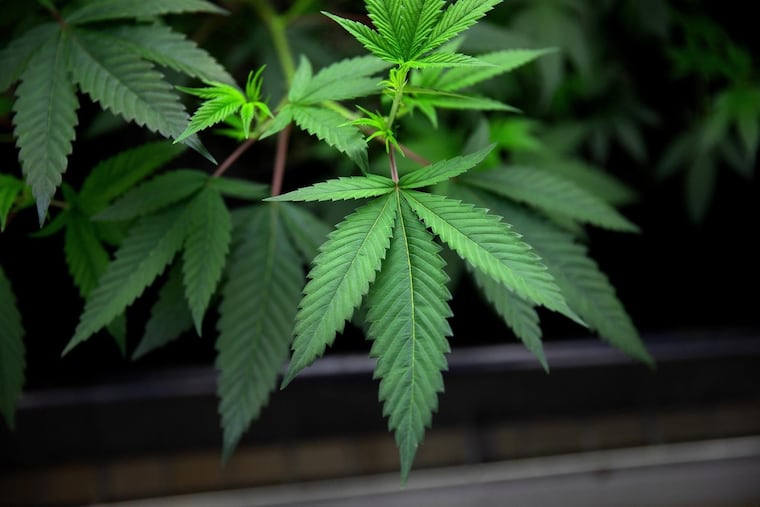‘Monumental’ day for cannabis in U.S. Congress; key committee votes to make marijuana federally legal
For the first time, a congressional committee voted to end federal prohibitions on cannabis.

For the first time, a congressional committee has voted to end federal prohibitions on cannabis.
As impeachment hearings transpired across the hall in the Capitol on Wednesday afternoon, the House Judiciary Committee, by a vote of 24-10, advanced a bill that could make use of marijuana legal.
The Marijuana Opportunity Reinvestment and Expungement (MORE) Act of 2019, which has bipartisan support and 55 cosponsors, would remove cannabis from the Controlled Substances Act. Marijuana is a Schedule 1 drug, which means the federal government treats it as if it were as dangerous as heroin or LSD and has no medical benefit.
The act would also require authorities to remove federal cannabis convictions from millions of criminal records.
More than two-thirds of American voters support full legalization, according to poll results released Nov. 14 by the Pew Research Center. The share of U.S. adults who oppose legalization has fallen from 52% in 2010 to 32%.
The bill has the support of several Philadelphia-area members of congress, all Democrats. But U.S. Rep. Madeleine Dean (D., Montgomery) believes there’s enough in the legislation to appeal to Senate Republicans.
“It’s a very conservative bill in that it gives control to the states,” said Dean, who serves on the Judiciary Committee.
One of those conservatives is U.S. Rep. Matt Gaetz (R., Fla.), who on Wednesday voted in favor. But Rep. Doug Collins (R., Ga.) used the words of one Democratic presidential candidate to argue against it.
“Joe Biden agrees, stating this past Saturday that marijuana legalization is ‘a debate, and I want a lot more before I legalize it nationally. I want to make sure we know a lot more about the science behind it,’" Collins said in a statement.
The MORE Act also would create a framework that would prevent the federal government from interfering in state cannabis laws. Collins derided that freedom as leaving the states to “fend for themselves.”
Former Republican House Speaker John Boehner, once an adamant opponent of marijuana legalization, now sits on the board of one of the largest cannabis companies in the world and offers online seminars on how to get rich investing in weed stocks.
Local cosponsors of the bill include U.S. Reps. Bonnie Watson Coleman (D., N.J.), Mary Gay Scanlon (D., Pa.) and Dwight Evans (D., Pa.). Evans also is supporting a bill that would allow adults to grow marijuana at home.
Revenue generated under the MORE Act would be used to fund training and educational programs for communities that have felt the brunt of the War on Drugs, Watson Coleman said. A portion would go toward substance-abuse treatments.
Watson Coleman said there hasn’t been much of an opportunity to discuss the bill broadly within her caucus. “We’ve been pretty busy down here protecting democracy,” she said, referring to the impeachment hearings.
Marijuana activist Chris Goldstein called the vote “monumental.”
“It’s the first piece of marijuana cannabis legislation in Congress to move this far. And this could lead to more local reform as well,” said Goldstein, a South Jersey-based organizer for the National Organization for the Reform of Marijuana Laws. “I think we’ll see more Republicans and Democrats joining on. This goes to show you can’t go to Congress and ignore this issue anymore, that’s for sure.”
The bill was introduced in July by U.S. Rep. Jarrold Nadler (D., N.Y.) and presidential candidate and U.S. Sen. Kamala Harris (D., Calif.).
Judiciary was only the first of several committees that will need to vet the bill. If leaders are confident it has enough support, the bill could go to the House floor for a vote next year. If it passed, it would be referred to the Senate.
Two other major pieces of cannabis legislation — the Secure and Fair Enforcement (SAFE) Act and the Strengthening the Tenth Amendment Through Entrusting States (STATES) Act — also are wending their way through Congress. The SAFE Act would allow banks to do business with the cannabis industry.
“The SAFE banking act and the STATES Act have good momentum,” said lawyer Seth A. Goldberg, who heads the cannabis industry group for Philadelphia law firm Duane Morris LLP. “But descheduling — which is what the MORE Act would do — would change everything.”